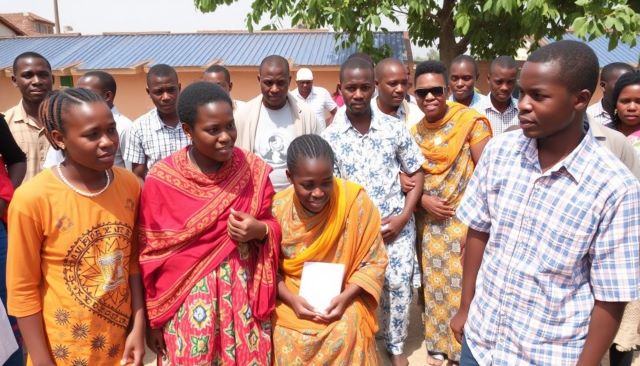In the crowded streets of Cotonou, the sound of motorbike engines blends with the steady murmur of political debate. Across university courtyards, internet cafés, and the ever-busy corridors of social media, a new force is asserting itself in Benin’s public life — the country’s youth. Their demands are clear: transparent governance, an end to corruption, and a political system that listens to their voices.
This movement is not an isolated wave of energy but part of a longer continuum of youth involvement that has shaped Benin’s political identity for decades. From the fervor of independence to the digital campaigns of the present, young people have remained a consistent catalyst for change.
Historical Roots and Political Awakening
Benin’s colonial past, marked by the dislocation of social structures and the imposition of foreign rule, sowed seeds of political restlessness among younger generations. The dismantling of traditional governance systems left deep scars, influencing the political aspirations of the country’s youth well into the post-independence era.
Following independence in 1960, organized youth movements emerged as a driving force for reform. Associations such as the Youth for the Development of Benin mobilized thousands, their rallies and debates echoing across towns and villages. The 1990 National Conference proved a turning point, with students and young activists pressing for a multi-party democracy in open defiance of entrenched authoritarianism. The legacies of these movements remain woven into the political consciousness of today’s generation.
A Shifting Political Landscape
In contemporary Benin, optimism and skepticism coexist. National elections stir hope for greater accountability, even as many question whether the political class can meet the demands of a younger, more connected electorate. Generation Z — digitally fluent and civically aware — is increasingly vocal, using online platforms not just to comment but to organize, protest, and propose policy alternatives.
Political parties span the spectrum from reformist incumbents to opposition coalitions promising systemic overhaul. The competition of ideas is fierce, but the voices of young citizens are now impossible to ignore.
Social Media as a Political Battleground
The most visible change in recent years is the rise of digital activism. Platforms like Facebook, Twitter, and Instagram have become modern public squares, hosting debates, coordinating demonstrations, and amplifying advocacy campaigns.
Several high-profile movements illustrate this transformation:
- 2018 Anticorruption Protests: Online coordination drew more than 10,000 young people to Cotonou, demanding government accountability.
- Youth for Democracy (2020): Mobilized 20,000 supporters for local races through targeted digital outreach.
- Gender Equality March (2021): Sparked by a viral hashtag, the initiative brought 15,000 participants into the streets for women’s rights advocacy.
The reach of these campaigns underscores a pivotal shift: the digital space is no longer a peripheral tool but a core driver of political engagement.
Education and Political Consciousness
Higher education plays a crucial role in shaping the political outlook of young Beninese. Universities and civic training programs equip students with the analytical skills needed to question policies, demand reforms, and craft solutions. Organizations such as Youth for Change and Voices of Tomorrow offer workshops on governance, encouraging the transition from political awareness to active participation.
Barriers and Resistance
Yet, the path forward is not without obstacles. High youth unemployment and economic inequality limit access to political processes, while state repression has grown more pronounced. Intimidation, surveillance, and arrests of dissenting voices cast a shadow over the nation’s democratic aspirations. For many, the price of activism remains steep.
Still, defiance persists. In conversations across Benin’s cities, there is an undercurrent of determination — a belief that civic courage can outlast political suppression.
Toward a New Political Era
The vision emerging from Benin’s youth is not merely oppositional; it is constructive. They seek a political system where leaders see citizens as partners, where transparency is not a campaign slogan but a governing principle. Their activism is aimed at dismantling outdated structures and replacing them with inclusive, participatory institutions.
Whether through protests in city squares, policy proposals debated in student halls, or hashtag campaigns reaching across continents, Benin’s young citizens are positioning themselves as the architects of the country’s political future. The momentum they have generated suggests that the nation’s next chapter will be written, in large part, by their hands.
Sources:
- Banégas, Richard. La Démocratie à pas de caméléon: Transition et imaginaires politiques au Bénin. Karthala, 2003.
- United Nations Development Programme (UNDP). Youth and Political Participation in Africa, 2021.
- Freedom House. Freedom in the World 2023: Benin.
- Afrobarometer. Benin Round 9 Survey Summary, 2022.

